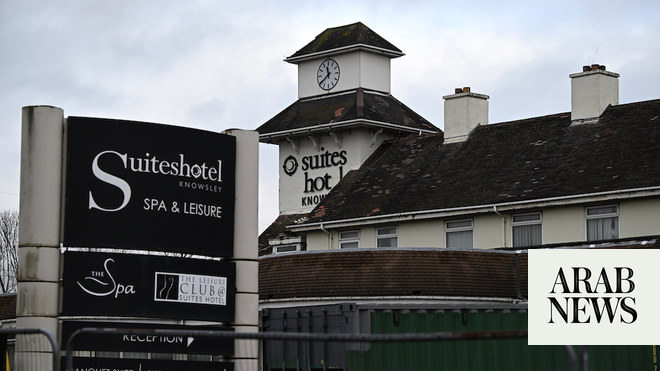
“Don’t worry, I will be back. Whatever they do to me, I will be back,” was one of the last things Eli Sharabi told his wife and daughters before he was abducted by Hamas. And when the 52-year-old was freed after 16 months in captivity in Gaza, he was desperate to know if his family were waiting for him.
It was only then that he was told that his British wife, Lianne Sharabi, 48, and daughters Noiya, 16, and Yahel, 13, had been murdered at their home in the Be’eri kibbutz in Israel on 7 October 2023.
Stephen Brisley, Lianne’s brother, visited Sharabi in hospital in Israel days after he was freed as part of a ceasefire and hostage release deal.
“We just threw our arms around each other and hugged each other. I was scared to hug him too tight because he’s so skinny and emaciated. I was almost scared that I was going to break him if I hugged him too hard. But I hugged him, kissed him, told him I loved him,” Brisley told the Guardian.
“One of the first things he said to me was: ‘I’m so sorry.’ It’s a mark of the man that he’s such a family man that his first thoughts were making sure I’m OK and expressing condolences to me.
“Physically, it’s really upsetting to see. Obviously he’s being well looked after in the hospital, trying to get his weight back up and seeing what long-term damage, if any, has been caused. But mentally he’s so strong. He was telling me that he never doubted that he would come out, not for a second. He promised Lianne and the girls that he would be back, that he would come back. And he kept that promise, but unfortunately they weren’t there to greet him.”
Sharabi was released alongside two other Israeli hostages, Or Levy and Ohad Ben Ami, 34 and 56, on 8 February after nearly 500 days in captivity. All three men looked frail and gaunt as they were paraded in front of a crowd that included armed Hamas fighters in Gaza City before their release.
Speaking on stage before being handed to the Red Cross, Sharabi said he was “very happy today to return to … my wife and daughters”.
Brisley, from Bridgend in south Wales, said: “That was the final bit of psychological torture that Hamas visited upon him, to have him up on stage at the handover that was dripping in propaganda, to have him thanking his captors, to say: ‘I’m looking forward to seeing my family and being reunited with my wife and children.’
“It was when he was in the transfer vehicle with the IDF going from Gaza into Israeli soil that he asked: ‘Are Lianne and the girls waiting for me?’ And it was a soldier from the IDF who had to break the news to him that they’d been killed.”
Brisley said Sharabi had told only “bits and pieces” of his time in captivity but had said starvation was one of the most difficult parts.
“We know that he was held with other hostages at various times … some of them were younger men, and Eli being Eli, he became a sort of father figure to them and tried to look after them. I think that gave him some purpose,” Brisley said.
“[He was] fed once a day, a small amount of pasta or rice and that was pretty much it. And he said almost the most difficult thing to deal with was the starvation, the lack of food, it’s just on your mind all day, every day.”
Sharabi was keen to speak about his memories of his Bristol-born wife and daughters, telling Brisley about their Christmases together and their last holiday to Thailand.
“Having seen how gaunt and pale he was at the handover and the darkness in his eyes, I was scared that the light was gone and that Eli wasn’t in there any more,” Brisley said. “But the most reassuring thing about being reunited with him is to see that Eli is very much still there. He’s incredibly mentally strong.”












